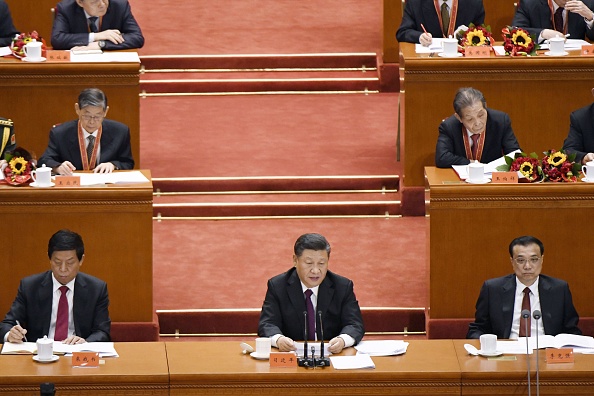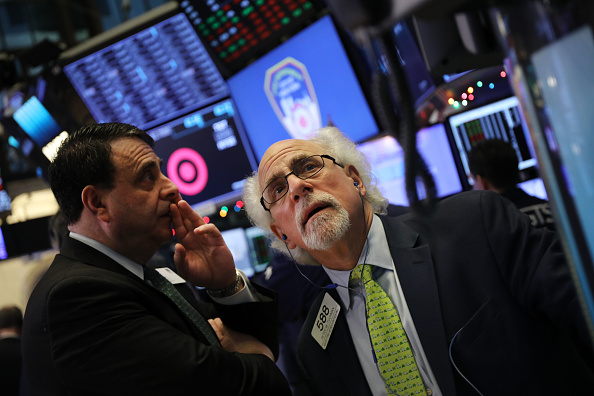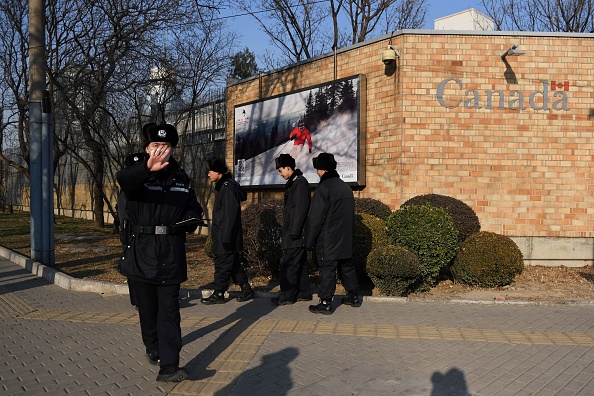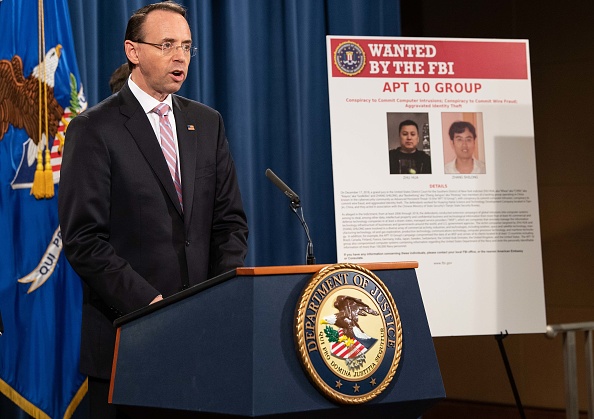
 Xi's 40th Anniversary Speech
Xi's 40th Anniversary SpeechThis Tuesday, President Xi Jinping gave a speech commemorating the 40th anniversary of China's Reform and Opening Up, the transformational economic policy that has led China to becoming the second largest economy in the world. Analysts and investors looking for clear policy announcements in Xi's speech, given the ongoing US-China trade frictions and the slowdown of the Chinese economy, were left disappointed. Instead, Xi presented a resolute defense of the Party's policies. Here are some highlights:
- President Xi praised the Communist Party for being "completely correct" in its economic policies following the 1978 reforms, and reiterated the Party's allegiance to its guiding ideology, "Socialism with Chinese Characteristics."
- Xi also stated that "[no] one is in the position to dictate to the Chinese people what should and should not be done," ringing heavy against recent the detentions of 3 Canadian citizens and calls to ease up on protectionist trade policies.
- Xi paid homage to Marxist-Leninist principles for guiding China into economic prosperity.
- Softening his tone, Xi also assured that "[n]o matter what level of development China reaches, it will never seek hegemony." His comment comes after US National Security Advisor John Bolton dished out heavy criticism last week for China's "predatory practices" on the African continent.
 Global Markets Plunge
Global Markets PlungeMajor international markets continued to sink Friday amid fears of rising US instability and fears of the ongoing US-China trade dispute threatening global economic growth.
On Friday, US markets hit a 19-month low following rising interest rates and tensions in the White House.
Asian markets, including China, Japan, and Australia, also dropped on recession fears, with Chinese stocks on track to end 2018 as the world's worst performing market, with a loss of around 24%.
Contributing to the global decline, earlier this week interest rates were raised in the US for the fourth time in 2018, making it harder for businesses and individuals to borrow money. Two more increases are expected in 2019.
Over in the White House, President Trump threatened a government shutdown over funding for a proposed Mexico border wall. Adding to instability was the sudden military withdrawal from Syria and the resignation of Secretary of Defense Jim Mattis.
This has been the US stock market's worst December since the Great Depression, despite the December boost that markets typically see following a surge from Christmas shopping.
Although another round of US-China trade talks are set to occur in January, global anxieties mount as the the recent wave of Canadian detentions and cyber espionage accusations further strain the relationship between the world's two largest economies.
 Third Canadian Arrested in China
Third Canadian Arrested in ChinaTensions following the arrest of Huawei CFO, Meng Wanzhou (孟晚舟) continue to mount. Following the arrest, two Canadians, ex-diplomat Michael Korvig and businessman Michael Spavor, were arrested on charges of "undermining China's national security." Korvig is allegedly being denied access to a lawyer. Wednesday's arrest of Sarah McIver marks the third arrest by China of a Canadian, this time on the grounds of illegal employment in the country. However, Prime Minister Trudeau and Chinese Foreign Ministry spokeswoman Hua Chunying both denied links to the first two arrests. Hua said on Thursday that McIver received an "administrative penalty," while the other two detainees "have been put under compulsory measures by state security."
 US & UK Hacking Accusations Against China Raise Ire
US & UK Hacking Accusations Against China Raise IreOn Monday, as tensions continue to mount between China and western countries, the US and UK took the unprecedented step of accusing hackers linked to the Chinese government of waging a sustained cyber-campaign focused on large-scale theft of commercial intellectual property and breaking a 2015 pact to curb cyber-espionage for corporate purposes.
A grand jury in the southern district in New York indicted two members of an alleged hacking group located in Tianjin, China. The two men, Zhu Hua and Zhang Shilong, are charged with "conspiracy to commit computer intrusions, conspiracy to commit wire fraud, and aggravated identity theft" and have been placed on an FBI Wanted List. According to the US Department of Justice, the two were charged for "allegedly carrying out an extensive cyber-espionage campaign against government agencies and major corporations." Targets of the alleged espionage include 45 entities, including commercial and defense technology companies and US government agencies such as NASA and the US Navy.
UK officials said that the issue has been raised privately at the highest levels with China for the best part of two years, but the hacking had not stopped, which was why the Chinese were being challenged in public.
In response, China's Foreign Ministry spokeswoman Hua Chunying accused the US of "fabricating lies," and called the US "arrogant" and "selfish" for attempting to sabotage the development of other countries.
It is unclear where exactly Zhu Hua and Zhang Shilong are, but because China does not have an extradition treaty with the US, US efforts to detain the pair are expected to be difficult, if not impossible.
Prepared by China-US Focus editorial teams in Hong Kong and New York, this weekly newsletter offers you snap shots of latest trends and developments emerging from China every week, while adding a dose of historical perspective.
- 2018-12-14 Post-G20 Detentions & Tech Tensions
- 2018-11-30 Trump and Xi Set to Face Off at the G20
- 2018-11-26 Xi Strengthens Alliances in Preparation of G20
- 2018-11-16 World Leaders Meet at ASEAN and APEC Summits to Discuss Economic Strategy
- 2018-11-09 US and China Hold Delayed Diplomatic and Security Dialogue
- 2018-11-02 Presidents Xi and Trump Talk Possible Trade Deal
- 2018-10-26 With U.S. Pressure, China and Japan Grow Closer
- 2018-10-19 Secretary Mattis Meets Chinese Counterpart in Singapore
- 2018-10-12 Trump and Xi May Meet at the G20
- 2018-10-05 U.S. Vice President Articulates Hard Line on China in Speech
- 2018-09-28 A Turbulent Week For China-U.S. Relations at the UNGA
- 2018-09-21 China Will Not Purposefully Devalue the Yuan, Premier Li Keqiang Says
- 2018-09-14 China and the U.S. Discussing New Trade Talks, As Pressure Over Trade Policy Grows
- 2018-09-07 Forum on China-Africa Cooperation Yields New Pledges
- 2018-08-31 BRI’s Fifth Anniversary Comes Amidst Debate Over Sustainability
- 2018-08-24 Trade Talks Continue in DC as New Tariffs Hit
- 2018-08-17 Trade Talks Back On
- 2018-08-10 American Natural Gas Industry Braces for New Chinese Tariffs
- 2018-08-03 Tentative Signs of U.S.-China Cooperation at the ASEAN Summit
- 2018-07-27 President Trump’s Trade War Bailout